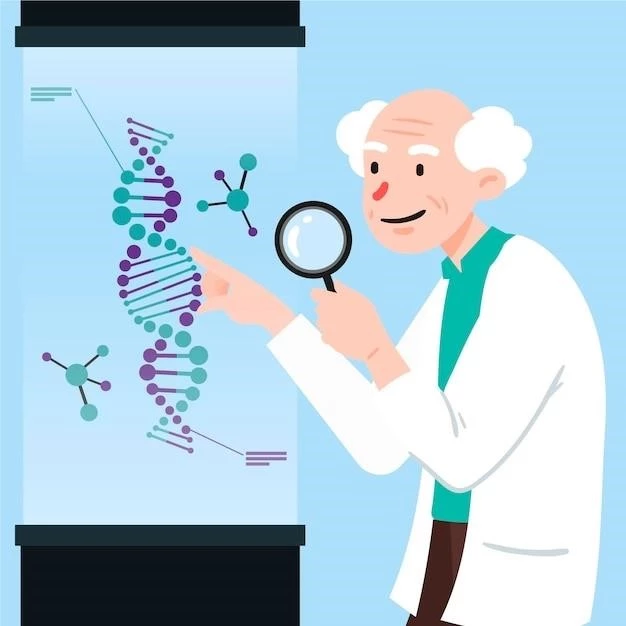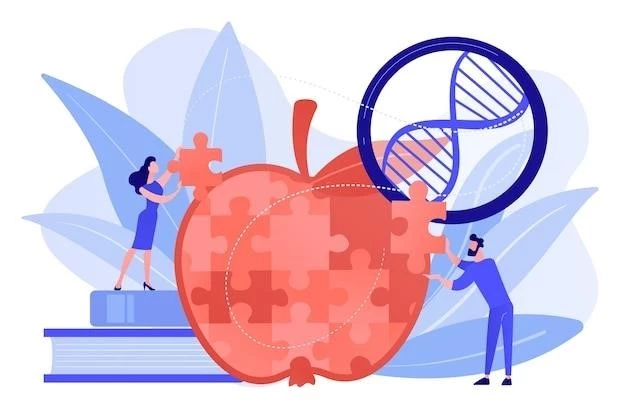Drachtman–Weinblatt–Sitarz Syndrome
Introduction to Drachtman–Weinblatt–Sitarz Syndrome
Drachtman–Weinblatt–Sitarz syndrome is a rare genetic disorder characterized by a combination of physical, cognitive, and developmental abnormalities. This syndrome was first described in 2007 and since then, only a small number of cases have been reported worldwide. Individuals with Drachtman–Weinblatt–Sitarz syndrome may experience a range of symptoms that can affect various aspects of their health and wellbeing.
The genetic basis of this syndrome involves a chromosomal mutation that leads to the development of the condition. Diagnosis of Drachtman–Weinblatt–Sitarz syndrome can be challenging due to its rarity and the variability of symptoms among affected individuals. Understanding the symptoms and recognizing the disorder are crucial steps in providing appropriate care and support for patients with this condition.
Research into Drachtman–Weinblatt–Sitarz syndrome is ongoing to further elucidate its underlying causes, improve diagnostic methods, and explore potential treatment options. Medical advancements in the field of rare genetic disorders offer hope for better management strategies and enhanced quality of life for individuals living with this syndrome.
Genetic Basis of Drachtman–Weinblatt–Sitarz Syndrome
Drachtman–Weinblatt–Sitarz syndrome is a genetic disorder caused by a specific chromosomal mutation. Individuals with this syndrome have abnormalities in their genetic makeup that result in the characteristic features associated with the condition. The mutation responsible for Drachtman–Weinblatt–Sitarz syndrome can impact various genes involved in the development and functioning of different bodily systems.
Genetic testing is often required to confirm the presence of the mutation associated with Drachtman–Weinblatt–Sitarz syndrome. By analyzing the individual’s chromosomes, healthcare providers can identify the specific genetic anomaly that leads to the manifestation of the disorder; Understanding the genetic basis of the syndrome is essential for accurate diagnosis and appropriate management of the condition.
Research in the field of rare genetic disorders like Drachtman–Weinblatt–Sitarz syndrome aims to further investigate the molecular mechanisms underlying the genetic mutation responsible for the syndrome. Advances in genetic technology and sequencing methods have facilitated the identification of specific genetic abnormalities associated with a range of rare disorders, including Drachtman–Weinblatt–Sitarz syndrome.
Symptoms and Diagnosis
Individuals with Drachtman–Weinblatt–Sitarz syndrome may present with a variety of symptoms affecting both their physical and cognitive health. Common physical symptoms include abnormalities in facial features, musculoskeletal issues such as joint contractures or scoliosis, and congenital heart defects. Cognitive symptoms may involve intellectual disabilities, developmental delays, and speech or language impairments.
Diagnosing Drachtman–Weinblatt–Sitarz syndrome can be complex due to its rarity and the heterogeneity of symptoms observed in affected individuals. Healthcare providers rely on a combination of clinical assessments, genetic testing, and specialized imaging studies to confirm a diagnosis. Identifying the specific genetic mutation associated with the syndrome is crucial for accurate diagnosis and appropriate management of the condition.
Early recognition of the characteristic symptoms of Drachtman–Weinblatt–Sitarz syndrome is essential for timely intervention and support. Individuals suspected of having the syndrome should undergo a comprehensive evaluation by a multidisciplinary team of healthcare professionals, including geneticists, neurologists, cardiologists, and developmental specialists, to facilitate an accurate diagnosis and tailored treatment plan.
Causes and Development of Drachtman–Weinblatt–Sitarz Syndrome

Drachtman–Weinblatt–Sitarz syndrome is primarily caused by a genetic mutation that results in chromosomal abnormalities. This mutation can occur spontaneously or be inherited from a parent with the syndrome. The specific genetic changes associated with Drachtman–Weinblatt–Sitarz syndrome lead to the development of the characteristic symptoms and features observed in affected individuals.
During fetal development, the genetic mutation responsible for Drachtman–Weinblatt–Sitarz syndrome can impact the formation and function of various organ systems, leading to the physical and cognitive manifestations of the disorder. The exact mechanisms through which the genetic mutation affects normal development are still under investigation, and ongoing research aims to elucidate the intricate pathways involved.
The progression of Drachtman–Weinblatt–Sitarz syndrome can vary among individuals, with some experiencing more severe symptoms and complications than others. Factors such as the specific genetic mutation, environmental influences, and individual variations in gene expression may contribute to the diverse clinical presentation of the syndrome. Understanding the causes and developmental pathways of the disorder is crucial for developing targeted treatment strategies and interventions.
Prognosis and Complications
The prognosis for individuals with Drachtman–Weinblatt–Sitarz syndrome can vary depending on the severity of their symptoms and the presence of associated complications. Due to the rarity of the syndrome and limited data on long-term outcomes, predicting the prognosis for affected individuals can be challenging. Some individuals may have a relatively stable course of the disorder, while others may experience progressive deterioration of their health.
Complications associated with Drachtman–Weinblatt–Sitarz syndrome can affect multiple organ systems and contribute to the overall disease burden. Common complications may include respiratory problems due to musculoskeletal abnormalities, cardiovascular issues related to congenital heart defects, and challenges with mobility and physical functioning. Additionally, cognitive and developmental delays can impact an individual’s quality of life and daily functioning.
Management of complications and proactive medical care are essential in improving the overall prognosis for individuals with Drachtman–Weinblatt–Sitarz syndrome. Regular monitoring by a multidisciplinary healthcare team and early intervention strategies can help address potential complications promptly and enhance the individual’s quality of life. Despite the challenges posed by the syndrome, ongoing research and advancements in medical care offer hope for improved prognosis and outcomes for affected individuals.
Treatment and Management
Managing Drachtman–Weinblatt–Sitarz syndrome involves a comprehensive approach that addresses the diverse spectrum of symptoms and challenges faced by affected individuals. While there is no cure for the syndrome, treatment strategies focus on symptom management, supportive care, and early intervention to optimize the individual’s well-being.
Medical interventions may target specific symptoms of Drachtman–Weinblatt–Sitarz syndrome, such as orthopedic corrections for musculoskeletal abnormalities, cardiac interventions for congenital heart defects, and interventions to support cognitive development and communication skills. Physical therapy, occupational therapy, and speech therapy are often key components of the treatment plan to enhance functional abilities and quality of life.
Psychological support and counseling play a crucial role in addressing the emotional and social challenges experienced by individuals with Drachtman–Weinblatt–Sitarz syndrome and their families. Education and vocational training programs can help individuals achieve their full potential and promote independence in daily activities. Additionally, genetic counseling may be recommended for families to understand the hereditary nature of the syndrome and make informed decisions about family planning.
Regular follow-up appointments with healthcare providers are essential to monitor the individual’s health status, track the progression of symptoms, and adjust the treatment plan as needed. Collaborating with a team of specialists, including geneticists, neurologists, cardiologists, and therapists, ensures a holistic and personalized approach to managing Drachtman–Weinblatt–Sitarz syndrome.
Healthcare and Support for Patients
Individuals with Drachtman–Weinblatt–Sitarz syndrome require ongoing healthcare and support to address their complex needs and optimize their quality of life. Access to specialized medical care, supportive services, and community resources is essential in managing the challenges associated with the syndrome and promoting overall well-being.
A multidisciplinary healthcare team plays a pivotal role in providing comprehensive care for patients with Drachtman–Weinblatt–Sitarz syndrome. This team may include genetic counselors, pediatricians, neurologists, therapists, social workers, and other specialists who collaborate to develop individualized treatment plans and support strategies tailored to the unique needs of each patient.
In addition to medical interventions, emotional and social support is crucial for individuals with Drachtman–Weinblatt–Sitarz syndrome and their families. Support groups, counseling services, and advocacy organizations can offer valuable resources and a sense of community for individuals living with rare genetic disorders. These resources can help individuals navigate challenges, foster resilience, and promote a sense of belonging.
Educational support is also vital for individuals with Drachtman–Weinblatt–Sitarz syndrome to ensure access to appropriate learning environments and specialized educational programs. Collaboration between healthcare providers, educators, and families is key in creating inclusive and supportive educational opportunities that cater to the unique needs and abilities of individuals with the syndrome.
Research and Medical Advancements
Research into Drachtman–Weinblatt–Sitarz syndrome is critical for advancing our understanding of the disorder, improving diagnostic methods, and exploring potential treatment options; As a rare genetic syndrome, continued scientific investigations play a vital role in shedding light on the underlying mechanisms, genetic pathways, and clinical manifestations of the condition.
Ongoing research efforts focus on identifying the specific genetic mutation responsible for Drachtman–Weinblatt–Sitarz syndrome and elucidating how this mutation impacts various biological processes. By uncovering the molecular basis of the syndrome, researchers aim to develop targeted therapies that address the root causes of the disorder and potentially ameliorate its symptoms.
Advancements in genetic testing technologies have facilitated more accurate and timely diagnosis of Drachtman–Weinblatt–Sitarz syndrome, enabling healthcare providers to identify affected individuals earlier in their lives; This early detection can lead to better management strategies, personalized treatment plans, and improved outcomes for patients and their families.
Clinical trials and collaborative research initiatives continue to drive progress in the field of rare genetic disorders, offering hope for innovative therapeutic interventions and enhanced patient care. By fostering partnerships between researchers, clinicians, advocacy groups, and pharmaceutical companies, the medical community can work together to accelerate the development of effective treatments for Drachtman–Weinblatt–Sitarz syndrome and other related conditions.
